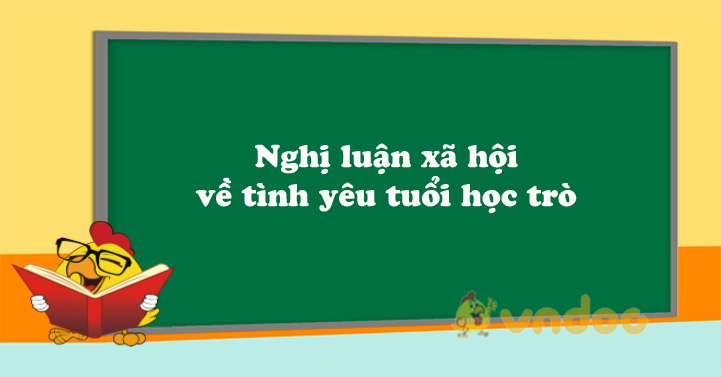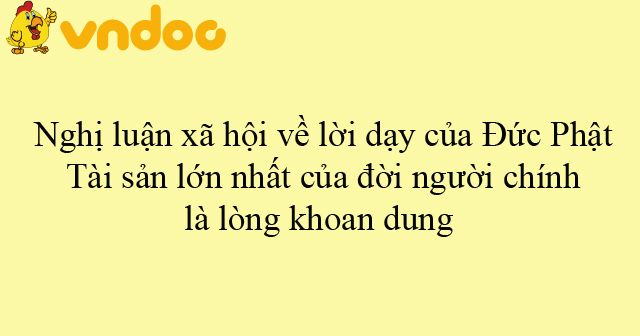|
ĐỀ SỐ 8 ««««« |
ĐỀ THI THỬ THPT QG NĂM HỌC 2020 Môn: Tiếng anh Thời gian làm bài: 60 phút, không kể thời gian phát đề |
Mark the letter A, B, C, or D on your answer sheet to indicate the word whose underlined part differs from the other three in pronunciation in each of the following questions.
Question 1. A. breath B. booth C. thank D. threat
Question 2. A. predator B. restore C. recollect D. preface
Mark the letter A, B, C, or D on your answer sheet to indicate the word that differs from the other three in the position of primary stress in each of the following questions.
Question 3. A. medicine B. endanger C. addition D. survival
Question 4. A. blackboard B. listen C. between D. student
Mark the letter A, B, C, or D on your answer sheet to indicate the correct answer to each of the following questions.
Question 5. I was doing my homework __________ the light went out.
A. after B. before C. since D. when
Question 6. __________ no taxi, they had to walk home.
A. There was B. There being
C. Because there being D. There is
Question 7. He’ll be very upset if you __________ his offer of help.
A. turn away B. turn from C. turn down D. turn against
Question 8. I __________ hurry. It’s nearly 8.00, and my first class starts at 8.15.
A. would prefer B. can’t help C. can’t D. had better
Question 9. Yesterday, I __________ a serious accident while I __________ on the beach.
A. see / am walking B. saw / was walking
C. was seeing / walked D. have seen / were walking
Question 10. He is the postman __________ I got this letter.
A. from who B. to whom C. from whom D. with whom
Question 11. The problem needs to be __________ immediately, otherwise it will be too late.
A. addressed B. focused C. monitored D. checked
Question 12. Tim didn’t do his homework, so the teacher became very angry. He __________ his
homework.
A. must have done B. should have done
C. might have D. will have done
Question 13. He was injured after jumping __________ the wall yesterday.
A. over B. under C. across D. through
Question 14. He was a natural singer with a voice that was as clear as __________.
A. a bell B. a mirror C. a waterfall D. a lake
Question 15. David does not have __________ Peter does.
A. money more than B. as many money as
C. more money as D. as much money as
Question 16. Much of our knowledge about prehistoric animals comes from the study of __________
A. arte facts B. relics C. fossils D. ruins
Question 17. __________, the more terrible the terrorism will become.
A. The more weapons are powerful B. The more powerful weapons are
C. The weapons more powerful D. Weapons are the more powerful
Question 18. I’ve been __________ with my friends for a couple of years.
A. out of reach B. out of the condition
C. out of touch D. out of the question
Mark the letter A, B, C, or D on your answer sheet to indicate the word(s) CLOSEST in meaning to the underlined word(s) in each of the following questions.
Question 19. The kidnapper gave himself up to the police.
A. confided himself B. surrendered
C. accommodated himself D. went up
Question 20. I think Michael hit the nail on the head when he said that what is lacking in this company is the feeling of confidence.
A. interpreted something indirectly
B. described something unconsciously
C. said something correctly
D. misunderstood something seriously
Mark the letter A, B, C, or D on your answer sheet to indicate the word(s) OPPOSITE in meaning to the underlined word(s) in each of the following questions.
Question 21. Thousands are going starving because of the failure of this year’s harvest.
A. hungry B. poor C. rich D. full
Question 22. Tom was too wet behind the ears to be in charge of such a difficult task.
A. full of experience B. lack of responsibility
C. without money D. full of sincerity
Mark the letter A, B, C, or D on your answer sheet to indicate the option that best completes each of the following exchanges.
Question 23. Tim and Tom are discussing where their study group will meet.
- Tim: “Where is our study group going to meet next weekend?”
- Tom: “ __________________”
A. Studying in a group is great fun. B. We are too busy on weekdays.
C. Why don’t you look at the atlas? D. The library would be best.
Question 24. - Mike: “I apologize to you for not keeping my promise”
- Mary: “ __________________”
A. Well, that’s out of question. B. Your apology is accepted.
C. I am grateful to that. D. That was very sweet of you.
Read the following passage and mark the letter A, B, C, or D on your answer sheet to indicate the correct word or phrase that best fits each of the numbered blanks from 25 to 29.
Spring is coming and it’s time for us to grow plants. Of course, not all plants are (25) __________ in season. This makes it very (26) __________ to pick the best plants to grow. The good news is that there are tons of choices. Do you know that plants can grow in nearly every climate? It’s true that some plants are picky but most are super (27) __________ and only require water, dirt and of course sun. This spring is the (28) __________ time to start your own garden. There are three amazing plants that work in every single climate. The first plant is spinach. Spinach is very easy to grow because it removes water well and can (29) __________ different levels of heat. The second one is carrots. There are many types of carrots you can grow. Most carrots are very quick to grow and also handle all types of climates as well. The third one is tomatoes. There are tons of different types of tomatoes. It’s easy to find the perfect tomato for any location. Go plant some plants!
Question 25. A. actually B. today C. currently D. actively
Question 26. A. easy B. fun C. stressful D. difficult
Question 27. A. flexible B. picky C. divine D. cranky
Question 28. A. worst B. fun C. perfect D. better
Question 29. A. hold B. sit C. stand D. remove
Read the following passage and mark the letter A, B, C, or D on your answer sheet to indicate the correct answer to each of the questions from 30 to 34.
Very few people in the modem world obtain their food supply by hunting and gathering in the natural environment surrounding their homes. This method of harvesting from nature’s provision is the oldest subsistence strategy, and has been practiced for at least two million years. It was, indeed, the only way to obtain food until rudimentary farming and the domestication of animals were introduced about 10,000 years ago.
Because hunter- gathers have fared poorly in comparison with their agricultural cousins, their numbers have dwindled, and they have been forced to live in marginal environments such as deserts forests or arctic wasteland. In higher latitudes, the shorter growing season has restricted the availability of plant life. Such conditions have caused a greater independence on hunting, and along the coasts and waterways, on fishing. The abundance of vegetation in the lower latitudes of the tropics, on the other hand, has provided a greater opportunity for gathering a variety of plants. In short, the environmental differences have restricted the diet and have limited possibilities for the development of subsistence societies. Contemporary hunter-gathers may help us understand our prehistoric ancestors. We know from observation of modem hunter-gathers in both Africa and Alaska that society based on hunting and gathering must be very mobile. While the entire community camps in a central location, a smaller party harvests the food within a reasonable distance from the camp. When the food in the area is exhausted, the community moves on to exploit another site. We also notice a seasonal migration on pattern evolving for most hunter gathers, along with a restrict division of labor between sexes. These patterns of behavior may be similar to those practiced by mankind during the Paleolithic Period.
Question 30. With which of the following topics is the passage primarily concerned?
A. The Paleolithic period B. Subsistence farming
C. Hunter-gatherers D. Marginal environment
Question 31. The word “rudimentary” is closest in meaning to _____________.
A. rough B. preliminary C. ancient D. backward
Question 32. When was hunting and gathering introduced?
A. 1,000,000 years ago B. 2,000,000 years ago
C. 10,000 years ago D. 2,000 years ago
Question 33. How can we know more about the hunter-gathers of prehistoric time?
A. By studying the remains of their camp sites. B. By studying similar contemporary societies.
C. By studying the prehistoric environment. D. By practicing hunting and gathering.
Question 34. Which of the following is not true according the passage?
A. More and more people in the modem time live on the food they gather in the natural environment around their homes.
B. The more vegetable in the lower latitude in the tropics there is, the greater opportunity for gathering plants there are.
C. Because of the shorter growing season in higher latitude, the availability of plants is limited.
D. The environmental differences result in restricted diet.
Read the following passage and mark the letter A, B, C, or D on your answer sheet to indicate the correct answer to each of the questions from 35 to 42.
An air pollutant is defined as a compound added directly or indirectly by humans to the atmosphere in such quantities as to affect humans, animals, vegetation, or materials adversely. Air pollution requires a very flexible definition that permits continuous changes. When the first air pollution laws were established in England in the fourteenth century, air pollutants were limited to compounds that could be seen or smelled- a far cry from the extensive list of harmful substances known today. As technology has developed and knowledge of health aspects of various chemicals has increased, the list of air pollutants has lengthened. In the future, even water vapor might be considered an air pollutant under certain conditions.
Many of more important air pollutants, such as sulfur oxides, carbon monoxides and nitrogen oxides are found in nature. As the Earth developed, the concentration of these pollutants was altered by various chemical reactions; they became components in biogeochemical cycles. These serve as an air purification scheme by allowing the compounds to move from the air to the water or soil. On a global basis, nature’s output of these compounds dwarfs that resulting from human activities.
However, human production usually occurs in a localized area, such as a city. In such region, human output may be dominant and may temporarily overload the natural purification scheme of the cycles. The result is a concentration of noxious chemicals in the air. The concentrations at which the adverse effects appear will be greater than the concentrations that the pollutants would have in the absence of human activities. The actual concentration need not be large for a substance to be a pollutant; in fact, the numerical value tells us little until we know how much of an increase this represents over the concentration that would occur naturally in the area. For example, sulfur dioxide has detectable health effects at 0. 08 parts per million (ppm), which is about 400 times its natural level. Carbon monoxide, however has a natural level of 0. 1 ppm and is not usually a pollutant until its level reaches about 15 ppm.
Question 35. The word “adversely “ is closest in meaning to __________.
A. considerably B. quickly C. admittedly D. negatively
Question 36. According to the passage, the numerical value of the concentration level of a substance is only useful if __________.
A. the other substances in the area are known B. it can be calculated quickly
C. it is in a localized area D. the natural level is also known
Question 37. It can be inferred from the first paragraph that __________.
A. the definition of air pollution will continue to change
B. water vapor is an air pollutant in localized areas
C. most pollutants today can be seen or smelled
D. a substance becomes an air pollutant only in cities
Question 38. According to the passage, human-generated air pollution in localized regions ___________.
A. will react harmfully with natural pollutants
B. can overwhelm the natural system removing pollutants
C. will damage area outside of the localized regions
D. can be dwarfed by nature’s output of pollutants
Question 39. The word “these” in the second paragraph refers to ___________.
A. the compounds moved to the water or soil B. the various chemical reactions
C. the pollutants from the developing Earth D. the components in biogeochemical cycles
Question 40. The word “localized “ is closest in meaning to ___________.
A. specified B. circled C. encircled D. surrounded.
Question 41. Which of the following is best supported by the passage?
A. Scientists should be consulted in order to establish uniform limits for all air pollutants.
B. Human activities have been effective in reducing air pollution.
C. One of the most important steps in preserving natural lands is to better enforce air pollution laws.
D. To effectively control pollution, local government should regularly review their air pollution laws.
Question 42. What does the passage mainly discuss?
A. The effects of compounds added to the atmosphere.
B. The economic impact of air pollution.
C. What constitutes an air pollutant.
D. How much harm air pollutants can cause.
Mark the letter A, B, C, or D on your answer sheet to indicate the underlined part that needs correction in each of the following questions.
Question 43. All the (A) applicants for the job will (B) be equally treated (C) regarding of their sex, age, or (D) nationality.
Question 44. (A) The amounts of oxygen and nitrogen in the air (B) almost always remain (C) stable, but the amount of water vapor (D) vary considerably.
Question 45. (A) Lack of animal protein (B) in a diet is a (C) serious cause (D) for malnutrition.
Mark the letter A, B, C, or D on your answer sheet to indicate the sentence that is closest in meaning to each of the following questions.
Question 46. “Why don’t you have your room repainted?” said Bob to Linda.
A. Bob suggested having Linda’s room repainted.
B. Bob asked Linda why she didn’t repaint her room.
C. Bob suggested that Linda should have her room repainted.
D. Bob suggested that Linda should repaint her room.
Question 47. I would rather you wore something more formal to work.
A. I’d prefer you wearing something more formal to work.
B. I’d prefer you to wear something more formal to work.
C. I’d prefer you will wear something more formal to work.
D. I’d prefer you wear something more formal to work.
Question 48. The review overvalued his latest film.
A. The review had a high opinion of his latest film.
B. The review turned down his latest film.
C. The review rejected his latest film.
D. The review gave his latest film a moderate appreciation.
Mark the letter A, B, C, or D on your answer sheet to indicate the sentence that best combines each pair of sentences in the following questions.
Question 49. My father does a lot of exercise. He’s still very fat.
A. Despite the fact that doing a lot of exercise, my father is still very fat.
B. My father does a lot of exercise, so he’s very fat.
C. Even though my father does a lot of exercise, he’s very fat.
D. My father is very fat, but he does a lot of exercise.
Question 50. She did not study hard. She failed the exam.
A. Even though she failed the exam, she didn’t study hard.
B. Unless she had studied hard, she would have failed the exam.
C. If she had studied hard, she would have passed the exam.
D. However hard she studied, she failed the exam.
Đáp án
|
1-B |
2-B |
3-A |
4-C |
5-D |
6-B |
7-C |
8-D |
9-B |
10-C |
|
11-A |
12-B |
13-A |
14-A |
15-D |
16-C |
17-B |
18-C |
19-B |
20-C |
|
21-D |
22-A |
23-D |
24-B |
25-C |
26-D |
27-A |
28-C |
29-C |
30-C |
|
31-B |
32-B |
33-B |
34-A |
35-D |
36-D |
37-A |
38-B |
39-D |
40-A |
|
41-B |
42-C |
43-C |
44-D |
45-D |
46-C |
47-B |
48-A |
49-C |
50-C |


.jpg)
.jpg)

